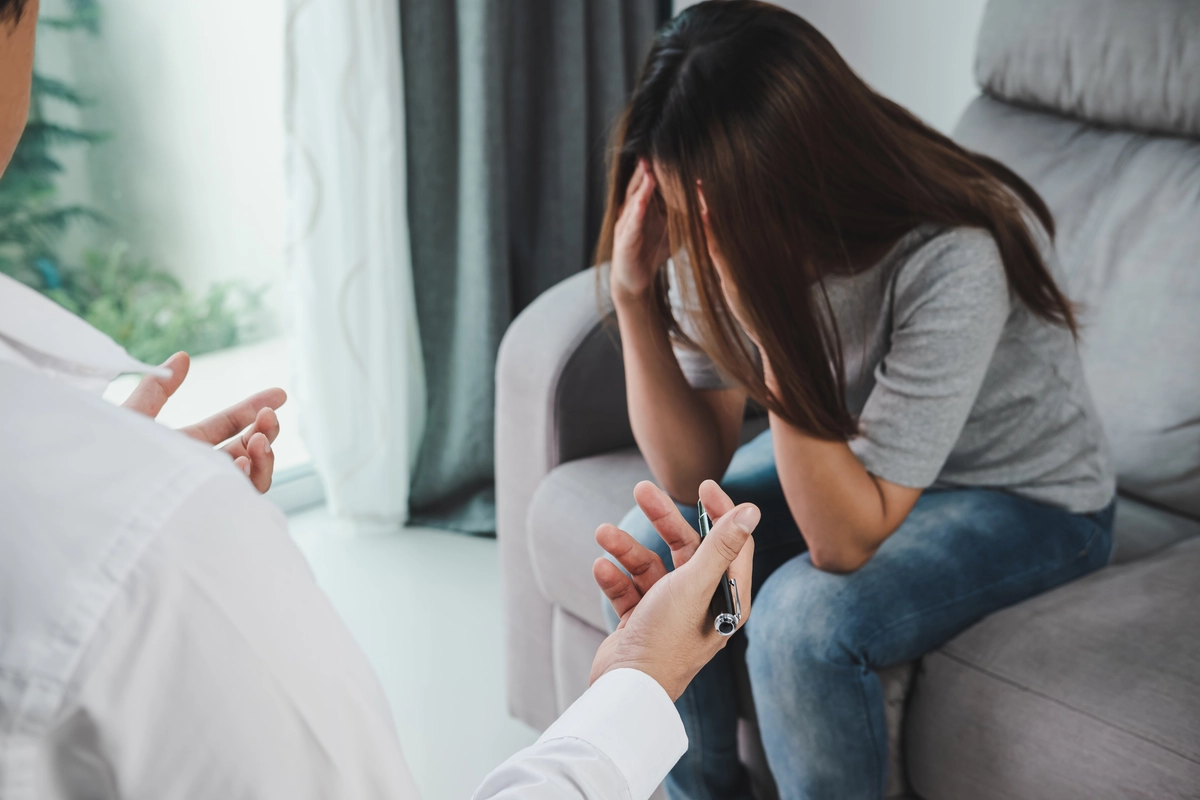24/7 Helpline:
(866) 899-111424/7 Helpline:
(866) 899-1114
Learn more about Anxiety Treatment centers in Pana
Anxiety Treatment in Other Cities
Other Categories in Pana

Other Insurance Options

Holman Group

Health Choice

CareSource

Cigna

AllWell

GEHA

Magellan Health

Kaiser Permanente

BHS | Behavioral Health Systems

Excellus

ComPsych

Highmark

Choice Care Network

Group Health Incorporated

MVP Healthcare

Premera

American Behavioral

Coventry Health Care

PHCS Network

WellCare Health Plans

New Horizons
New Horizons is a private rehab located in Pana, Illinois. New Horizons specializes in the treatment...



Behavioral Health Services North
Behavioral Health Services North is a non-profit rehab located in Morrisonville, NY. Behavioral Heal...

South Texas Behavioral Health Center
South Texas Behavioral Health Center is a drug and alcohol rehab located in Edinburg, Texas. They pr...

Behavioral Hospital at Reinasance
DHR Health Behavioral Hospital is a comprehensive dual diagnosis substance use treatment center in E...

TTBH – Tropical Texas Behavioral Health
Tropical Texas Behavioral Health (TTBH) is located in Edinburg, Texas. Tropical Texas Behavioral Hea...


























































































Liberty Counseling Center
Liberty Counseling Center is a private rehab located in Taylorville, Illinois. Liberty Counseling Ce...

New Horizons Substance Abuse
New Horizons Substance Abuse is a private rehab located in Taylorville, Illinois. New Horizons Subst...

Christian County Mental Health
Christian County Mental Health is a private rehab located in Taylorville, Illinois. Christian County...

A Helping Hand
A Helping Hand AHEAD is a private rehab located in Edinburg, TX. A Helping Hand AHEAD specializes in...

New Beginnings – Behavioral Health
New Beginnings – Behavioral Health is a private rehab located in Edinburg, Texas. New Beginnings – B...

TTBH – Tropical Texas Behavioral Health – Substance Use Disorder Services
Tropical Texas Behavioral Health (TTBH) - Substance Use Disorder Services is located in Edinburg, Te...

































































































